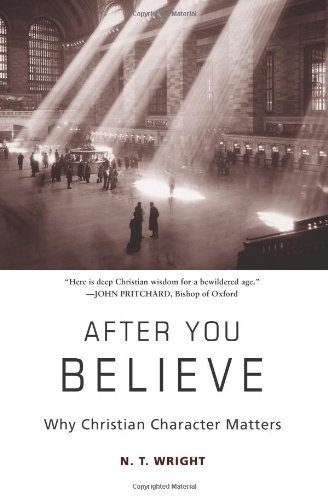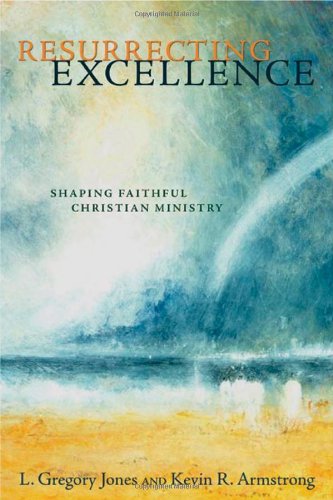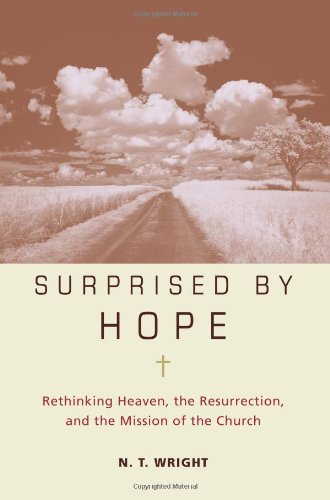Recently we had Bishop Todd finish off our Reclaim The Spiritual Discipline series. Many have shared how much they were impacted by the simplicity and the depth of Bishop's talk. We decided to transcribe some of it here for your enjoyment and reflection.
The following are quotes from his talk/sermon.
For many people today, the gospel goes something like this: say this prayer so that when you die you can go to heaven - Classic Evangelical point of view.
This is why we have to reclaim the disciplines, this is why they're not normative, this is why they're not intuitive, this is why they’re just not obviously practiced.
The intuitive implicit story we are telling each other is that core to Christianity is this thing called salvation, and what salvation means is where you go when you die.
If you died tonight, do you know where you’d go? But let me suggest to you a better set of evangelistic questions that would make the disciplines, if you want to reclaim them, completely intuitive. Ready? What if you knew you were going to live tomorrow? What if you knew for absolute certain you were going to live tomorrow?… And what if you knew for sure you were going to live next week, and next month, and what if you were sure that you were going to be alive 50, 60 or 70 years from now? Who would you follow? Around what story would you organize the various aspects of your life? From sexuality, to maleness, to femaleness, to working, to owning a business. Around what would be the narrative that you would shape your life. Because here’s the real deal, everybody’s learning to do life from somebody. There are no real true rebels. Even rebels learn to be rebels from someone else.
As soon as you say, well i’m gonna follow Jesus, that then raises the question well what’s Jesus up to? Jesus was very plain about this, he came into public and the very first words out of his mouth were these: the time is fulfilled, the kingdom of Heaven is at hand, repent and believe.
Jesus is very conscious of living in a story, he’s very conscious in living in something that’s unfolding, that had its beginning in divine intention. Before there was space and time, before we could know the distance between me and you, and before we could know the time it takes my voice to hit your ears. Before we knew space and time, there’s a God who purposed that there would be space and time as we know it today. And he spoke it into existence, and that launched this big divine story.
They [the disciples] were saying, Lord what do you do when you’re alone because we see the affect in public. We see the results of your silence and your solitude, your prayer… What is it that you’re doing there because when you come into public and you teach, you’re not like any other Rabbi. the crowds say we’ve never heard anybody teach like this. When you express your ministry, miracles happen and whole cities are converted because no one has ever seen a Rabbi act with this kind of power. Whenever Jesus is questioned about that, his basic routine answer is I only do what I see my father doing.
"So here’s what I want you to do, God helping you: Take your everyday, ordinary life - your sleeping, eating, going-to-work, and walking-around life—and place it before God as an offering. Embracing what God does for you is the best thing you can do for him. Don’t become so well-adjusted to your culture that you fit into it without even thinking. Instead, fix your attention on God. You’ll be changed from the inside out. Readily recognize what he wants from you, and quickly respond to it. Unlike the culture around you, always dragging you down to its level of immaturity, God brings the best out of you, develops well-formed maturity in you."
- Romans 12: 1-2
What are you going to do for ever and ever? Revelations 22:5 says this: you’re going to rule and reign with him, forever and ever… (in a sense he did this when he said to) Adam and Eve, look at this amazing new creation I’ve created, come be with me in it.
If you think you’re just going to Heaven when you die, you will never reclaim the disciplines, not in any really consistent way. They’ll come and go… when they come and they’re flowing we can begin to feel a bit self-righteous. And when they're ebbing, when they don’t seem really alive in our life, then we start attacking ourselves with guilt and shame. So if something only makes you feel falsely self-righteous when it’s happening, and when it’s not happening makes you filled with guilt and shame, why would anybody want to have anything to do with it?
Those things come out of that false narrative that the only thing that’s important is where I go when I die. Jesus’ explanation of the kingdom includes where you go when you die, but (it) cannot be reduced to it.
We take up the disciplines because we’re not the type of people who naturally love and serve others, so what are you gonna do about it? Do you even intend to love and serve others?… Do you really intend to be a servant, or is this just about going to Heaven when you die? Jesus lived in a very finely focused intentionality. I am my father’s son, I say what he says and I do what he shows me to do because I’m a servant.
Jesus washed his disciples’ feet.
How did Jesus become the kind of person, for whom his everyday ordinary life was pregnant with the possibilities of divine appointments?
If we’re going to take the disciplines and somehow embed them in our lives, we need this vision, that it occurs within our everyday ordinary life. Our sleeping, eating, getting up, going to work, walking around life is the place from which it happens.
If you’re going to recover these disciplines, they cannot be something you add to an already over-busy, over-indebted, over-calendared life. They cannot be, you’ll never sustain them.
It isn't like I have a secular life, and I add service and disciplines to it. No, you have one life that’s oriented around this big story that Jesus was conscious of being in, and that he says the people of God are now caught up with him. He’s the head, we’re the body. So we’re in the same story that Jesus was, and what we’re shooting for is not merely going to Heaven when we die, you are going there, relax.
What we’re shooting for with the disciplines is adding them to our life so that you don’t learn to be patient by reading a book on patience during your morning quiet time, you learn to be patient when somebody’s cutting you off on the freeway.
I just go through my day: my everyday ordinary life has now become the grounds for my discipleship. It’s there that I reclaim the disciplines.
In the same way these big beams allow us to be in this room, let morning and evening prayer be the thing... that holds you up. But in your being (in between these pillars), that’s where you practice the disciplines. So don’t reduce the disciplines to something that sits outside your calendar, or your responsibilities. Let your responsibilities be the soil in which you cultivate learning to love and follow God in the way that Jesus modeled.
{Special thanks to Alex Kearsley for taking the time to transcribe the message!}
Bishop & I praying with the congregation during the prayer & reflection time.
Recommended Books





